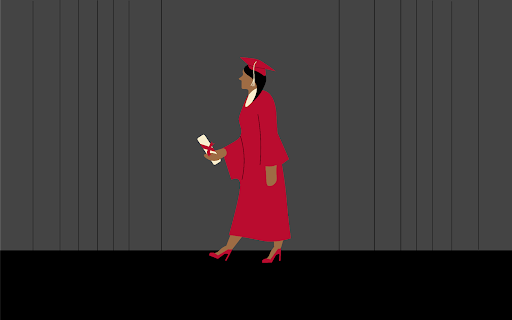
When it’s time to sit down and study, it can be difficult to solely focus on the materials. The world is full of distractions, whether it be technology or loud noises. While many students study listening to music, different types of music have various effects. Oftentimes, people listen to music to distract themselves; either studying for an important exam or listening to your favorite artist, album or song can be very distracting. However, peaceful, smooth music can reduce stress, improve motivation and increase focus. Here are three types of music to listen to to get you into the studying mood.
Classical Music
Listening to classical music may seem boring to many college-aged students. However, it can be considered one of the best studying background noises for students. With sounds pleasing to the ear, it can improve cognition in the brain, allowing information retention to expand. The peaceful effect induced by classical songs produces a dopamine increase, which prevents stress hormones and clarifies focus and thinking.
The Mozart Effect — a scientific theory that states that listening to classical music increases spatial intelligence — is widely used as academic motivation. Additionally, composers including Bach and Vivaldi are well-renowned for their 60-beats-per-minute music; this tempo can help in putting the mind into a more productive mode, allowing creativity to flow. Classical music with a tempo of 60-beats-per-minute “helps regulate the brain’s rhythm, regulating the movement and improving pulse control, which balances the very specialized powers of the left and right hemispheres,” according to Music in the Classroom. Therefore, when it’s a week full of exams, homework and lectures, classical music is a beneficial choice when needing to get work done in a timely, yet relaxed, manner.
Playlists can be made to specify the type of music students want to study to. Check out these two Spotify playlists: Study Classics: Bach and 60 beats per minute classroom music.
Film Soundtracks and Instrumental Renditions
If students are looking for more modern music to study to, both film soundtracks and instrumental versions of popular songs can be used. More often than not, film scores are instrumental-heavy, so even the soundtrack of a favorite movie can help you retain information while having minimal distractions. The Harry Potter series soundtrack has a balance between calm, joyful instruments with some more intense scores. A more whimsical soundtrack would lie within Disney, specifically Wall-E, which focuses on classical music since the film is almost entirely devoid of dialogue.
In addition, studying to instrumental renditions of modern songs is a great way to create balance. If students want to listen to a favorite song, listening to a different version is more efficient than the original while studying; this is because familiar tunes might divert attention away from study materials. Listening to songs without the lyrics allows for an easier way to remain focused on the task at hand. To get the best of both worlds, covers of well-known radio songs can be listened to.
Check out these two Spotify playlists: Film Scores and Soundtracks – Best Of and The VSQ Study Playlist
Nature Sounds
Though it may not seem like a music genre, natural sounds are a great way to have background noise if music is too distracting. The music of nature is perfect for students who cannot get on the classical music wave. It is known for elevating concentration levels, keeping the listener’s mind engaged in their work on a subconscious level. Additionally, it can be used to help with meditation if a study break is ever needed.
The “response to the sounds of nature have been shown to result in increased productivity, improved overall mood and deeper relaxation.” Utilizing the sounds of nature will help in calming the stress that students inevitably feel during the semester; it also allows a reset and refocus of the brain to occur, which improves clarity while working. Whether you listen to the sound of rain or the sounds of the beach, the soundtrack of nature is one that will produce a feeling of calmness that every student needs.
Check out these two Spotify playlists: Stress Relief Rain and Environment Instrumental and Relaxing Droplets
Ultimately, the choice of music for studying is different for every student, and it is important to experiment and find what works best for you. It is recommended to opt for music that is calming, without lyrics or distracting elements, to support your focus and productivity during study sessions.







